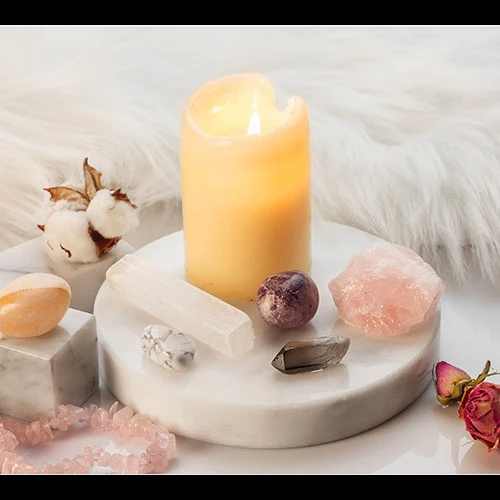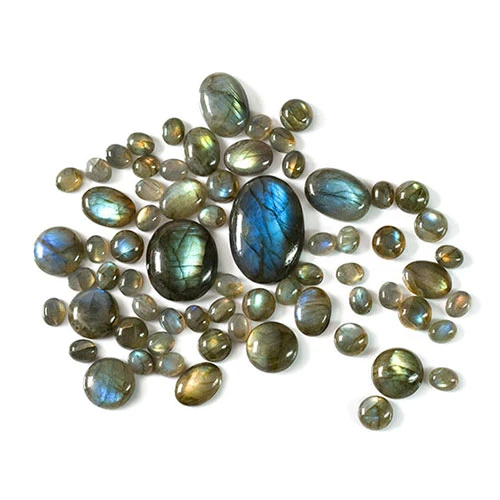Ethically and Sustainably Sourced Crystals

What Are Ethically and Sustainably Sourced Crystals?
When it comes to buying crystals, the phrase 'ethically and sustainably sourced' is widely misused.When a business states that its crystals have been 'ethically and sustainably sourced', they're assuring you that its products have been produced from raw material that's been mined in a way that aligns with ethical and environmental principles.
That includes the impact the mining has on the environment, labour practices and the exploitation of natural resources.
Google 'ethically sourced crystals', and you'll find endless businesses that claim their products have been sourced in this way. The first thing I do when I see this is look at what they're selling.
I saw a post recently on social media from someone selling lapis lazuli from Afghanistan. Her profile stated all of her crystals were ethically and sustainably sourced.
The post said the family that excavated the material owned the mine. Having sold and written about lapis lazuli for over twenty years, I know that's impossible. Lapis lazuli can only be found in Badakhshan Province, northeastern Afghanistan.
The Sar-e Sang mine, which is the only place in the country where it's mined, is high up in the Hindu Kush mountains.
 Intrigued by her claim, I sent her a message. I initially asked whether she had bought the stones from someone in Pakistan. I assumed they had told her a local family owned the mine.
Intrigued by her claim, I sent her a message. I initially asked whether she had bought the stones from someone in Pakistan. I assumed they had told her a local family owned the mine. This was her response (verbatim):
“I can’t tell you who are lapis suppliers are as they are PROTECTED. Most genuine lapis miners are in hiding!!!!! If you'd like more information on our ethical sourcing we do free talks and workshops.
We do talks on conflict crystals including lapis and malachite. All of the BIG ethical sellers use our supplier too so yes I trust they are 100% ethical. Unless Any of us are on the ground we just don't know. We also need to consider the old mine. The stock I have now has been mined over 3 years ago.
We do not use dynamite which can dig crystals out in seconds. So our method takes years. So this stock now was mined a while ago. You also have to consider the unethical side of buying. This is their entire lively hood and by not buying lapis out of "principle" it's kind of unethical too. They are starving!!”
Despite stating everywhere that she trades that her crystals have been “ethically and sustainably sourced”, she really didn't known what she was talking about.
There is no “old mine”. Lapis lazuli has been mined at Sar-e Sang for at least 6,500 years, and dynamite is used to expose new veins.
Malachite is not a conflict mineral. Lapis lazuli is.
 The “big ethical sellers" she talks of do not exist. There are no big ethical sellers because most reputable businesses that buy and sell rocks and minerals know how difficult it is to find material that has been mined in this way.
The “big ethical sellers" she talks of do not exist. There are no big ethical sellers because most reputable businesses that buy and sell rocks and minerals know how difficult it is to find material that has been mined in this way.Many of the 'crystals' being sold have been mined in some of the world's poorest and least developed countries. In 2021, 85,000 children, which is just over 29% of the population, were working in mines in Madagascar.
Vast quantities of rose quartz, amethyst, tourmaline, citrine, labradorite and carnelian are mined there. Children also work in mines in the Democratic Republic of Congo and some regions in India.
Mining practices in many other countries are dangerous, and workers earn a few dollars a day if they're lucky. A significant amount of material comes from China, where human rights are virtually non-existent. China also has a very poor safety record in terms of mining.
Material from Myanmar, particularly jade, is associated with significant human rights violations as well as extensive environmental damage. Very young children work the mines.
The seller I communicated with says her lapis lazuli was purchased over three years ago, which was 2019/2020. The mining of lapis lazuli has been funding Islamic extremism for many years. In 2013, it earned the Taliban and other armed groups more than twenty million dollars.
Ironically, she then says, “Unless any of us are on the ground we just don’t know.” If you read about what’s happening in Afghanistan regarding the mining of lapis lazuli, it’s quite easy to educate yourself.
Furthermore, if you “just don’t know”, you can't tell potential customers that you only sell ethically and sustainably sourced crystals.
Many retailers now use these buzzwords because they're what people want to hear. The problem with making this statement is that most are simply trusting what their suppliers tell them.
Around 80% of crystal retailers in the UK now claim their products have been ethically and sustainably sourced, which is virtually possible.
 In a subsequent message, this seller said. “As Afghanistan is a war zone, I presume even taxing lapis lazuli makes it a conflict mineral?”
In a subsequent message, this seller said. “As Afghanistan is a war zone, I presume even taxing lapis lazuli makes it a conflict mineral?”I replied, “Conflict minerals fund terrorism and oppression around the world. They're often mined using forced labour and involve other human rights abuses. They also support corruption and money laundering.
Some material is smuggled out of the country, but if discovered, the individual and their family face dire consequences.
Certain rocks and minerals (not lapis lazuli) can now be freely mined, but profits are small, and working conditions are incredibly dangerous. The big money is made when they're sold on by neighbouring countries.
Afghanistan is no longer a war zone. The war ended when the British and Americans pulled out in 2021. It's now a country in crisis being run by extremists who put terrorism and fear at the heart of their reign.”
I wanted to share my exchange with this business because there's so much ignorance and misinformation regarding ethically and sustainably sourced crystals.
When you ask a supplier in China, Pakistan, India, or Indonesia whether their products have been ethically and sustainably sourced, what response do you expect?
In a recent interview, the largest distributor of crystals from Madagascar, who has been trading at the Tucson Mineral Show for many years, stated that he was aware of the problem of child labour in his country but could do little about it.
Tucson is the world's largest rock and mineral fair.
 Click to read the full article
Click to read the full article
While writing this article, I stumbled across an advert for a new crystal shop in London that claims in large, bold letters that all of their crystals have been ethically and sustainably sourced.
Having visited their website, I found lapis lazuli from Afghanistan, Jade from Myanmar, and a variety of crystals from Madagascar. They also had mica but didn't say where it was from.
India produces 60% of the world's mica, and 20,000 children work in the mines. Many businesses, including Stone Mania, only buy mica from Brazil.
The mining industry in Myanmar is deeply complex and controversial. Operations in many regions have been linked to unsafe working conditions, environmental degradation, and ties to military-linked entities.
Profits from gemstone sales have reportedly financed armed conflict, and frequent mining-related disasters highlight ongoing safety concerns.
The country's lack of transparency and regulation makes it very difficult to establish whether crystals have been ethically and sustainably sourced.
 This woman in Madagascar earns a living from mining mica.
This woman in Madagascar earns a living from mining mica.
Clickable image.
Photo; Christine Romo - NBC News
To say their products have been ethically and sustainably sourced, a retailer must establish where the raw material was mined and by whom. In most cases, that's just not possible.
Having found another business that claimed to only sell ethically and sustainably sourced crystals, and stated their stones were "tracked and traced", I got in touch to ask where the lapis lazuli used for their elephant carvings was mined.
Because I was posing as a customer, I used my personal email address. In her response, the business owner accused me of "business espionage to extract trade sourcing information" and refused to have any further contact with me.
I've written about my encounter with this small business in another post. You can read it here.
 Many crystal sellers are now buying directly from Brazil. Although it's not as common for children in Brazil to work in mines, the conditions in which miners work are often poor, and wages are low.
Many crystal sellers are now buying directly from Brazil. Although it's not as common for children in Brazil to work in mines, the conditions in which miners work are often poor, and wages are low.Risks that have been well documented include lack of ventilation, extreme temperatures, long working hours and inadequate safety procedures. Serious accidents and deaths are relatively common.
The environmental impact of mining includes widespread deforestation, erosion of old mines, and pollution of soil, rivers and streams. Yet every wholesaler I have done business with in Brazil has told me that their materials are all ethically and sustainably sourced.
Let's not forget that many of the materials used in the tech we use every day are mined by very young children. Cobalt is needed to power the rechargeable lithium batteries in millions of products sold by Apple, Google, Dell, Microsoft and Tesla.
Does this put you off from buying them?
Do these companies state "our materials are ethically and sustainably" sourced?
Gold mining is one of the most socially destructive processes on the planet. Does anyone refuse to wear it because it's not ethically and sustainably sourced?
The entire 'ethical and sustainable' discussion of crystals has arisen purely because they're widely used for their healing properties. Therefore, it makes people feel better about using them if they believe they've been ethically and sustainably sourced.
I've been in this business since 2002 and have, for most of that time, been writing about rocks and minerals. I first saw the phrase 'ethically and sustainably sourced' in 2017. Just a few years later, the vast majority of businesses in the United Kingdom that sell crystals claim their products have been sourced in this way.








